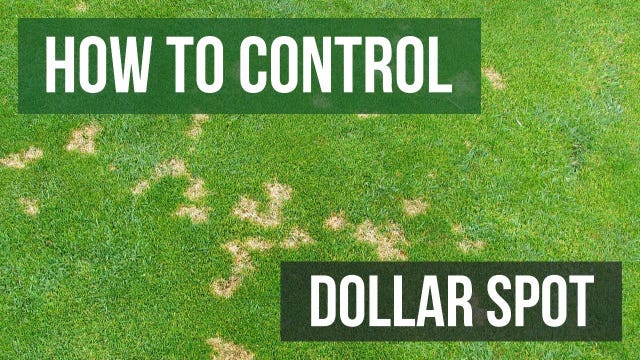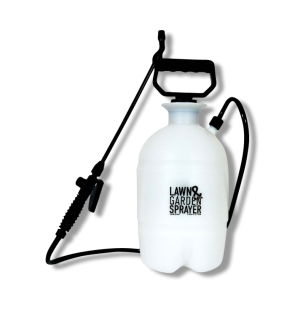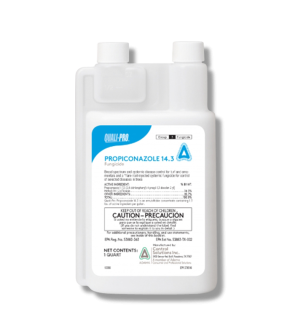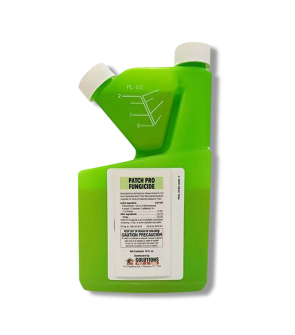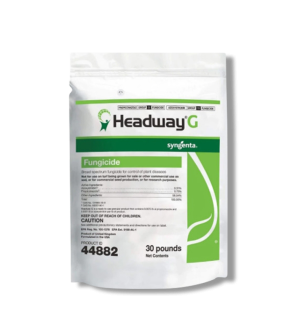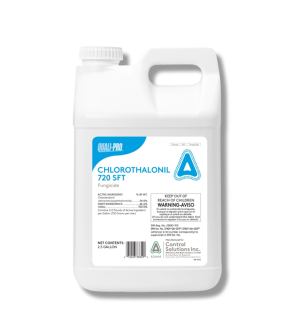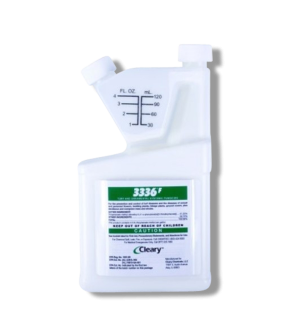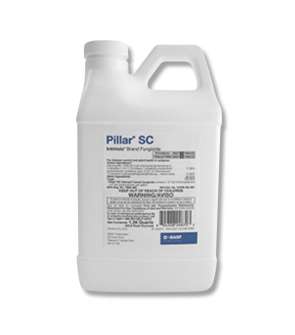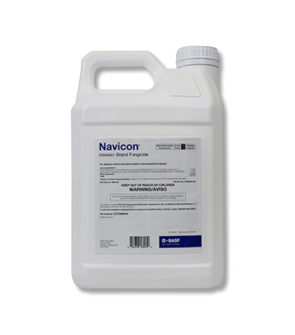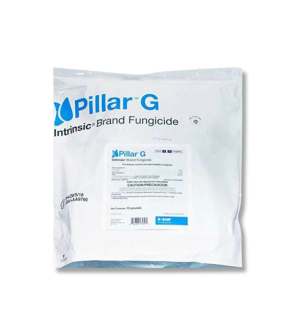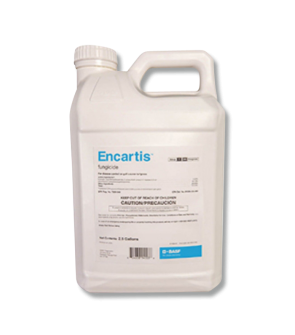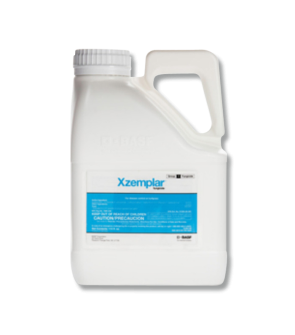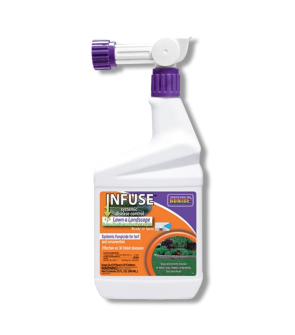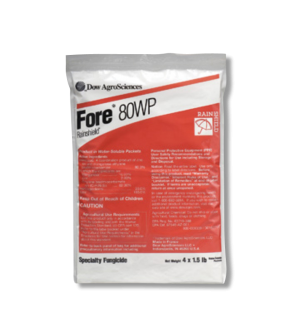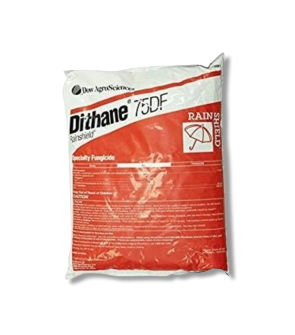Gain access to personalized product screening, the best pricing, rewards, and more!
Most Effective Products
Dollar Spot Control: How To Get Rid of Dollar Spot
This page is a general dollar spot control guide. Using the products and methods suggested, you will get control of the dollar spot. Follow this guide and use the recommended products, and we guarantee 100% control of the dollar spot.
Dollar spot is a fungal disease that attacks the leaf tissue without eliminating the roots. It is common on golf courses and residential turf. The fungus gets its name from its appearance: The disease creates small spots on turf that resemble a silver dollar. Dollar spots can affect annual bluegrass, creeping bentgrass, and other grass types.
Dollar spot is small but can cause severe damage to your turf. Its seeds can last for long periods of time in thatch and soil, making prevention and control important steps in getting rid of it. Areas that have been affected by dollar spot can become vulnerable to weeds.
If you notice a dollar spot on your turf, there are methods to control this disease and get it out of your lawn. This DIY dollar spot treatment guide will provide recommended products and instructions on how to get rid of dollar spots.
Identification

Because dollar spots can easily be mistaken for other lawn nuisances like brown patches, it is important to identify what is causing discolored patches in your grass correctly. Misidentification can lead to using the wrong treatment methods, costing you time and money. Here are some defining characteristics of dollar spot to look for to properly identify the disease.
- The spread of dollar spot will shape itself into circles roughly the size of a silver dollar.
- Dollar spot is tan colored and generally no larger than 1 inch in diameter, but several will group.
- When grass is affected by dollar spot, the blades will have white or tan markings.
- When the dollar spot spreads, the entire blade can be white or tan. On dewy mornings, you can see what looks like stringy cobwebs in your grass; this is the dollar spot spreading.
- On occasion, especially early in the morning, fungal threads (or mycelium) can be seen growing on the affected turf.
Use the image and description above to ensure that the dollar spot is present and active in your area. If you are not entirely sure, contact us, and we will assist you with proper identification.
Inspection

After you have correctly identified the dollar spot, proceed to an inspection. During this phase, you will recognize where the dollar spot is located and concentrate on your property and pinpoint the conducive conditions that may be helping the disease thrive.
Where to Inspect
Look closely at your lawn in the morning, especially if there is dew. The most important areas to observe are those with low-cut grass, low nitrogen levels, or dry soil. Fescue, ryegrasses, and zoysiagrasses are especially vulnerable to Dollar Spot.
Dollar spot is most active when temperatures reach up to 80 degrees Fahrenheit during the day and when nights are cool. Because of this, dollar spot emerges between early spring and late fall. The disease generally affects vulnerable turf with low nitrogen levels, and dry turf is also a symptom.
What to Look For
Scan the turf for small, circular, tan-colored patches. If necessary, pull a few blades of grass out. Look closely for discolored patches on the blades. These areas will also be tan-colored, sometimes with a dark brown border.
Treatment
Now that you have inspected the areas where dollar spot is active on your turf, applying a fungicide is the next practical step in getting rid of this disease. We recommend using Patch Pro Fungicide to control the presence of dollar spot in your turf.
To apply Patch Pro, you will need a hose-end sprayer, backpack sprayer, or hand-pump sprayer. Before applying any product, be sure to wear the proper personal protective equipment (PPE).
Step 1: Measure Your Turf Area

First, you will need to measure the square footage of the area you want to treat. Measure the treatment area's length and width in feet, then multiply them together (length x width = square footage).
For Patch Pro, the application rate is 0.5 to 2 fluid ounces per 1,000 square feet, depending on whether you are controlling or preventing dollar spot. We recommend 2 fluid ounces per 1,000 square feet for curative control.
Step 2: Mix Patch Pro with Water

Create your solution after determining how much Patch Pro you need for your targeted area. Fill your spray tank halfway with the required amount of water. Next, add in your measured amount of Patch Pro, fill your sprayer the rest of the way with water, and shake it to mix thoroughly.
Step 3: Apply Patch Pro Solution
Now that your solution is mixed, you can apply it to your treatment area. For maximum results, using a fan-spray setting is recommended. Even though Dollar Spot is only in certain areas of your lawn, coat your entire area to prevent It from spreading.
Apply your Patch Pro solution until your grass is visibly wet. Focus on areas that are shaded or have poor water drainage. Wait between 14 and 21 days to reapply. After three consecutive applications, switch to an alternative Fungicide with a different mode of action.
Prevention
While using a fungicide dramatically affects the amount of dollar spot in your turf, prevention is essential for controlling this disease. This is especially important for dollar spot because their seeds can remain dormant in winter before invading your lawn in spring.
- Ensure your lawn has a healthy amount of water, light, and nitrogen. If you apply fertilizer to your lawn, avoid adding too much nitrogen.
- Be sure to remove thatch from your lawn as well. Thatch buildup can trap moisture and block the turf below from getting sun and other nutrients.
- Mow your lawn at 3 to 4 inches in height, trimming back branches to minimize shade and avoiding over-fertilizing.
- When watering your plants, water the soil and not the leaves. Do it consistently at the same rate and at the same time once a week, preferably in the morning. We recommend 1 to 1.5 inches of water a week.
Key Takeaways
What is Dollar Spot?
- Dollar spot is a fungal disease that appears in small, tan-colored circles roughly the size of a silver dollar. It can spread quickly and infect your lawn.
How to Get Rid of Dollar Spot
- Our best form of dollar spot treatment is Patch Pro. Apply Patch Pro with a fan-spray setting to your lawn, and reapply every 14 days for continued control.
Preventing Dollar Spot Reinvasion
- Keep your lawn watered and fertilized with a nitrogen-rich formula to prevent the reappearance of the dollar spot.






